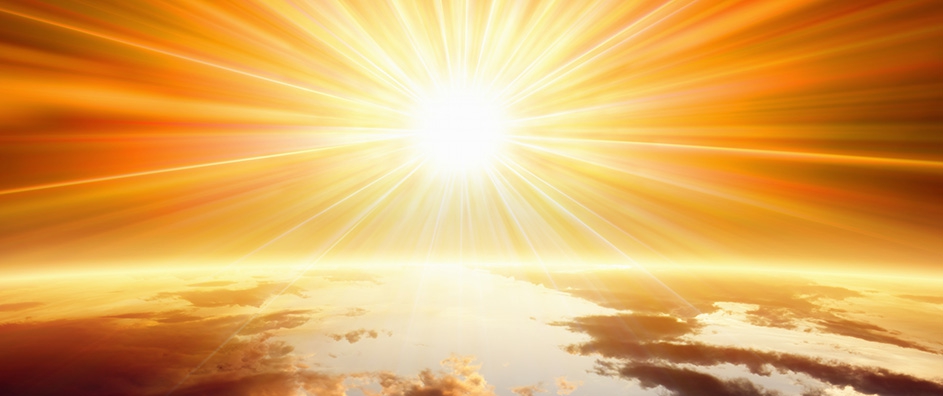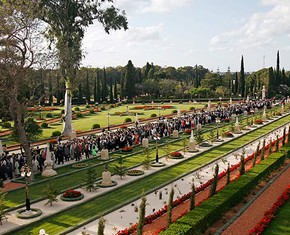The views expressed in our content reflect individual perspectives and do not represent the authoritative views of the Baha'i Faith.
What criteria do you use to determine the validity of a prophet of God?
When you think about it, making that important determination can affect your entire life, and the life of your descendants, too. If you encounter a messenger or teacher who actually does bring a new divine message for humanity, and you accept it and try to follow it, that decision could have major positive impacts over the course of this life—and the next one—not just for you personally, but for entire generations of your children and their children.
If you reject that same message, you could miss out on the guidance and spiritual insight we all need to live a happy, fulfilling life. On the other hand, if you rejected the message of a false prophet, it could also save you a great deal of grief and difficulty.
Just about anyone who reads the holy books of the world’s major Faiths already knows the traditional criteria for identifying a prophet of God. A true prophet has to a.) fulfill the prophecies of former Faiths; b.) reveal a holy book with laws, principles and teachings that guide humanity’s deeds and actions toward love and unity; c.) fully exemplify those deeds and actions in the prophet’s own life; and d.) have sufficient impact on the world to attract a significant number of followers and adherents to those new teachings. In other words, a true prophet produces the “fruits” that the tree of the new Faith promises:
Ye shall know them by their fruits. – Matthew 7:16.
The Baha’i teachings say the exact same thing—that only a true tree of life bears real fruit:
This is the wisdom of the appearance of the Prophets: to educate humanity, that this lump of coal may become a diamond and this barren tree may be grafted and yield fruit of the utmost sweetness and delicacy. – Abdu’l-Baha, Some Answered Questions, newly revised edition, p. 273.
In one of his talks in the United States in 1912, Abdu’l-Baha gave an even more succinct summary of ways to conclusively identify a divine educator, a prophet of God. He listed three distinct criteria:
The proof of the validity of a Manifestation of God is the penetration and potency of His Word, the cultivation of heavenly attributes in the hearts and lives of His followers and the bestowal of divine education upon the world of humanity. This is absolute proof. The world is a school in which there must be Teachers of the Word of God. The evidence of the ability of these Teachers is efficient education of the graduating classes. – Abdu’l-Baha, The Promulgation of Universal Peace, p. 340.
So let’s list those three criteria and see if we can rationally and historically demonstrate their efficacy:
- The penetration and potency of his word
- The cultivation of heavenly attributes in the hearts and lives of his followers
- The bestowal of divine education to the world of humanity.
You’ll notice, in this brief list, that Abdu’l-Baha left out any reference to prophecies or miracles of any kind. He explained that a reliance on traditional contentions of that sort would never convince a reasonable mind, and therefore he focused on rational proofs, ones that any fair-minded person could understand and accept.
Here, from that same talk, is Abdu’l-Baha’s rational explanation of the proof of Christ’s divine mission:
The purpose and mission of the holy, divine Messengers is the training and advancement of humanity, the cultivation of divine fruits in the gardens of human hearts, the reflection of heavenly effulgence in the mirrors of human souls, the quickening of mental capacity and the increase of spiritual susceptibilities. When these results and outcomes are witnessed in mankind, the function and mission of the Manifestations are unmistakable. Christ, single and alone, without schooling or outward education and trained to labor in the shop of a carpenter, appeared in the world at the time when the Jewish nation was in the greatest abasement. This radiant Youth, without wealth, power of armies or prestige, rescued the Jews who believed on Him from tyranny and degradation and lifted them to the highest plane of development and glory. Peter, His disciple, was a fisherman. Through the power of Christ he shed light upon all the horizons of the world. Furthermore, various people of the Greek, Roman, Egyptian and Assyrian nations were brought together in unity and agreement; where warfare and bloodshed had existed, humility and love were manifest, and the foundations of divine religion were established, never to be destroyed. This proves that Christ was a heavenly Teacher and Educator of the world of humanity, for such evidences are historical and irrefutable, not based upon tradition and circumstantial report. The power of His Word in cementing these nations together is as clear and evident as the sun at midday. There is no need of further demonstration. – Ibid., pp. 340-341.
We know historically that Christ’s word penetrated the hearts and souls of his followers. We know, too, that those early Christians cultivated heavenly attributes in their actions as a result of the teachings of Jesus—who bestowed “divine education upon the world of humanity.” The Baha’i teachings say that only the prophets of God can help humanity go from material progress to a divine civilization:
Baha’u’llah teaches that material civilization is incomplete, insufficient and that divine civilization must be established. Material civilization concerns the world of matter or bodies, but divine civilization is the realm of ethics and moralities. Until the moral degree of the nations is advanced and human virtues attain a lofty level, happiness for mankind is impossible. The philosophers have founded material civilization. The Prophets have founded divine civilization. Christ was the Founder of heavenly civilization. Mankind receives the bounties of material civilization as well as divine civilization from the heavenly Prophets. The capacity for achieving extraordinary and praiseworthy progress is bestowed by Them through the breaths of the Holy Spirit, and heavenly civilization is not possible of attainment or accomplishment otherwise. This evidences the need of humanity for heavenly bestowals, and until these heavenly bestowals are received, eternal happiness cannot be realized. – Ibid., p. 375.
















Comments
Sign in or create an account
Continue with Googleor